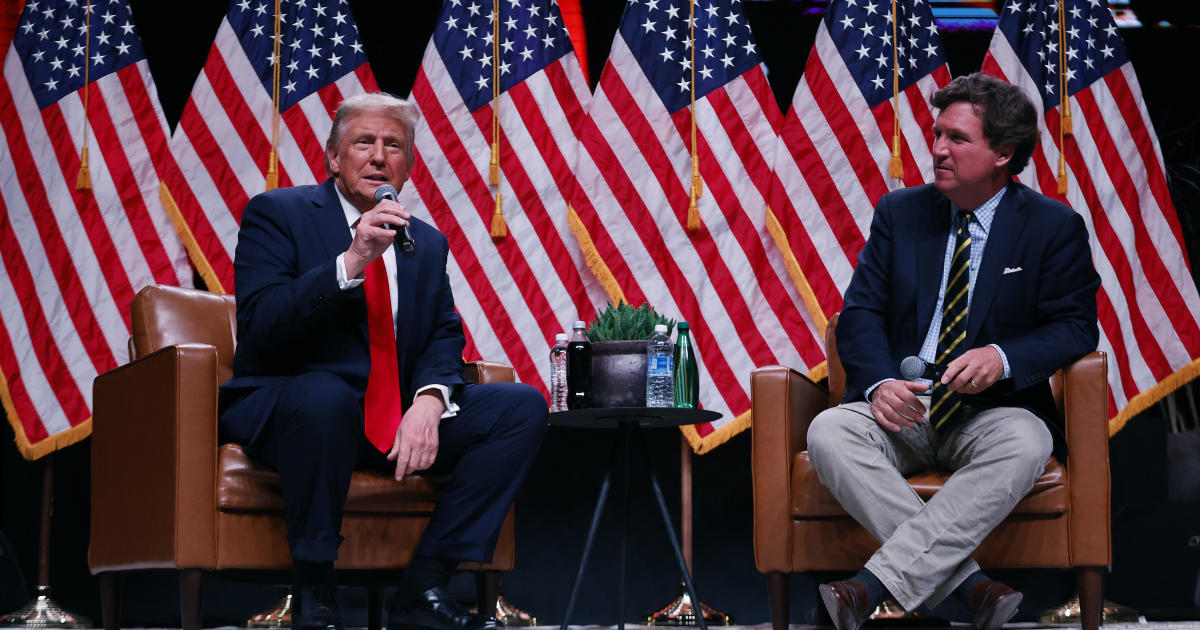In a scathing attack on one of his most vocal critics, former President Donald Trump targeted former Rep. Liz Cheney during a live interview with conservative personality Tucker Carlson in Glendale, Arizona. Trump referred to Cheney as a “war hawk” and suggested that she should be placed in a situation where she is faced with guns pointed at her.
During the interview, Trump disparaged Cheney’s intelligence and questioned her perspective on war, implying that her views would change if she were in a position where her life was threatened. He went on to describe Cheney as a “very dumb individual” and criticized her for advocating for military intervention in various situations.
Trump’s comments drew a swift response from Cheney, who took to social media to denounce his remarks as reflective of the actions of a dictator. Cheney accused Trump of using threats of violence to silence dissent and expressed concern about the implications of his behavior on the nation’s democratic principles.
In a bold move, Cheney endorsed Vice President Kamala Harris for president and has actively campaigned alongside the Democratic nominee in an effort to garner support from disenchanted Republican voters. Harris, in turn, condemned Trump’s rhetoric towards Cheney and emphasized that such behavior is unbecoming of a presidential candidate.
Despite the backlash, the Trump campaign stood by the former president’s comments and accused the media of sensationalizing the issue to sway public opinion ahead of the upcoming election. Trump’s press secretary, Karoline Leavitt, defended his statements, arguing that Cheney and others like her are quick to advocate for war without being willing to personally engage in combat.
In addition to Cheney, Trump also targeted other political figures during the interview, including former national security adviser John Bolton and Republican Rep. Adam Kinzinger. Trump referred to Bolton as a “real dope” and Kinzinger as a “total whack job,” demonstrating his disdain for individuals who have opposed his policies.
Furthermore, Trump reiterated his belief that there is a nefarious “enemy from within” seeking to undermine the country, a claim that has been met with skepticism from many within the political establishment. His inflammatory remarks have sparked a debate about the state of political discourse in the United States and the role of leaders in shaping public opinion.
As the controversy continues to unfold, it remains to be seen how Trump’s comments will impact the political landscape leading up to the election. With tensions running high and divisions deepening within the Republican Party, the future of the party and the nation hangs in the balance.
Overall, Trump’s attack on Liz Cheney has ignited a firestorm of controversy and raised important questions about the nature of political discourse in the United States. As the country grapples with the aftermath of Trump’s presidency, the legacy of his leadership and the impact of his words on the nation’s democratic institutions will continue to be hotly debated.









